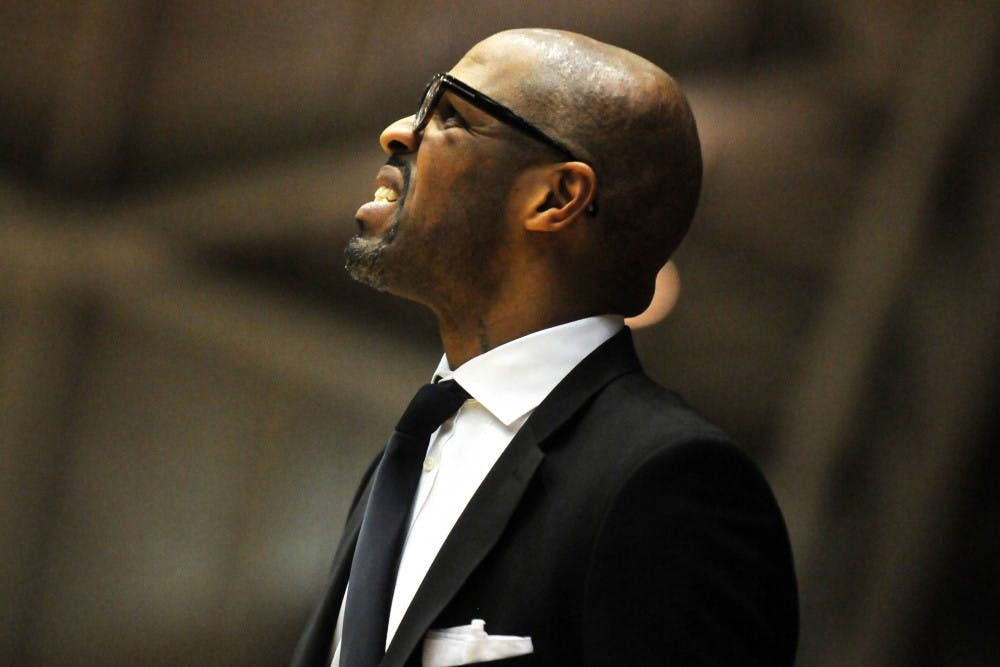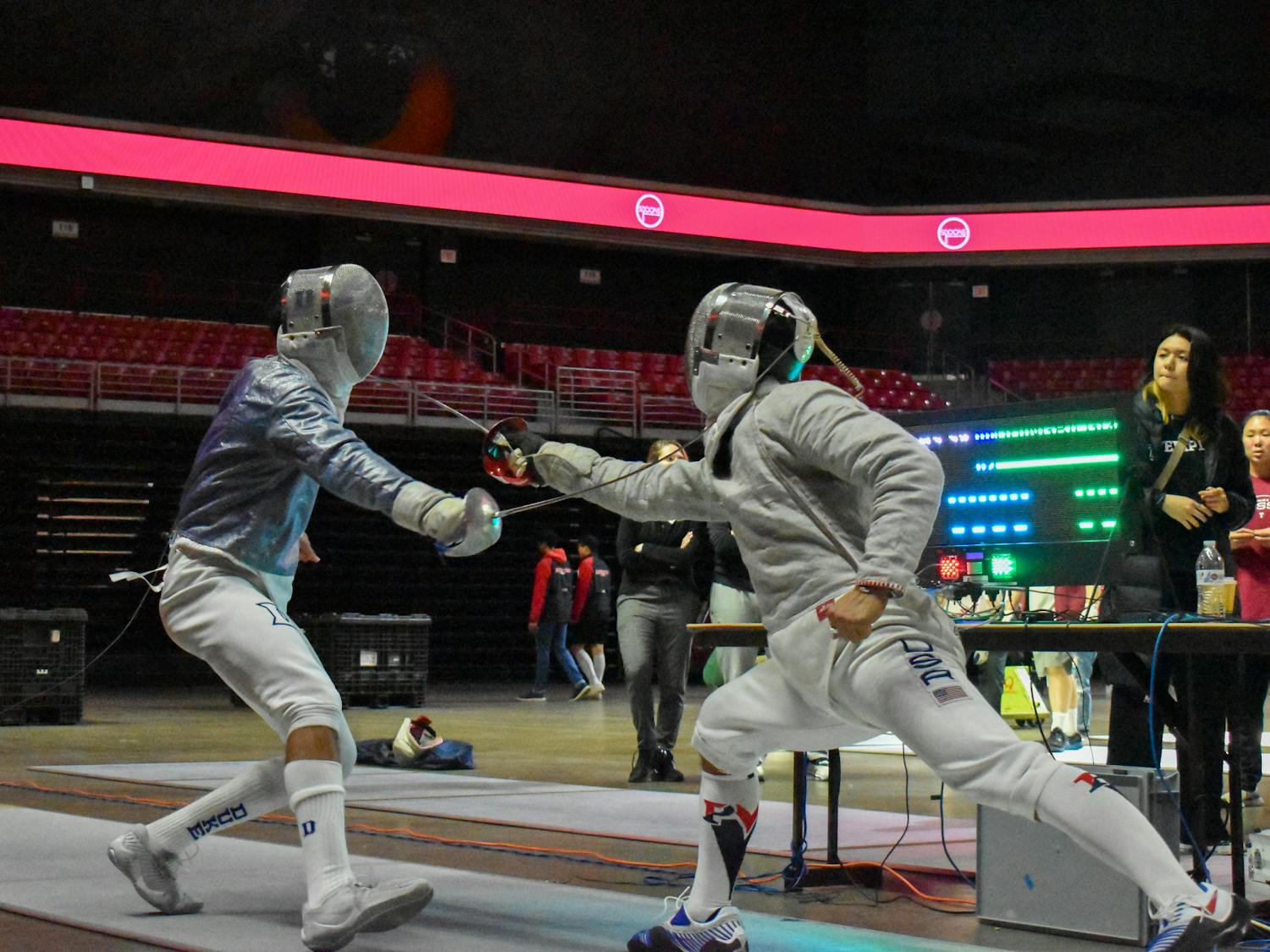On Monday, former Penn men’s basketball coach Jerome Allen was sentenced to four years of probation, of which six months will be spent on house arrest, the Miami Herald reported. Allen had pleaded guilty to accepting bribes from Philip Esformes in exchange for his son Morris’ admission to Wharton.
U.S. District Judge Kathleen Williams also sentenced Allen to 600 hours of community service and a fine of $202,000 in addition to an $18,000 forfeiture judgment to the U.S. government, according to the Herald.
“If there is any lesson here, you can’t pay your way in and you shouldn’t be able to pay your way out,” Williams said. “There is a debt owed — it’s more than just a reputational cost to you.”
During his sentencing, Justice Department prosecutors Elizabeth Young and Drew Bradylyons said that Allen had provided “substantial assistance” in their case against Esformes, who faces charges that he orchestrated a $1 billion Medicare fraud scandal, in Miami federal court. Young and Bradylyons recommended Allen receive a reduced jail sentence for his cooperation. The Herald reported that Allen’s lawyers then successfully argued for a probationary sentence.
“Mr. Allen gave an advantage to a college applicant who already had every advantage in the world,” Young said in court.
The Miami Herald reported that Williams said that Allen’s actions affected the “whole college system.”
“It wasn’t just the reputation of Jerome Allen,” Williams said. “It was the reputation of college sports and college admissions.”
From 2013 to 2015, Esformes had bribed Allen to secure a spot at Penn for his son, Morris.
RELATED:
Updated: Former Penn coach Jerome Allen testifies, implicating former assistant
Former men's basketball coach Jerome Allen allegedly took bribes while at Penn, report says
Allen pleaded guilty to charges of bribery in October, three months after the allegations against him first surfaced.
“I accepted the money to help Morris Esformes get into the school,” Allen testified during the elder Esformes’ trial in March. “I got his son into Penn; I got his son into Wharton. None of that would have happened without me.”
Esformes bribed Allen with over $300,000 to recruit his son Morris to Penn’s basketball team. Morris, who graduated in May, gained admission to Wharton as a member of the 2015-16 Penn men's basketball recruiting class. He never appeared on the Penn men’s basketball roster.
In March 2015, Allen was fired from Penn after leading the Quakers to three straight seasons with fewer than 10 wins. He had been a star player with the team as a student, and remains in the Penn Athletics Hall of Fame as an athlete. He now works for the Boston Celtics.
Allen testified earlier this year that former Penn assistant coach Ira Bowman was aware of and cooperated with Allen in the scandal. According to Allen, Philip Esformes had become concerned about his son’s position on the team after his departure. Bowman was allegedly given a debit card with access to an account that Esformes could wire money to. Bowman, who is now an assistant coach for Auburn men’s basketball, was suspended from the team while Auburn investigated. After an 80-day investigation, he was reinstated by the team.
Last July, Penn hired outside consultant Chuck Smrt of The Compliance Group to conduct an internal investigation of Allen’s conduct. The results of that investigation have yet to be released almost a full year later.
“Penn thoroughly reviewed everything surrounding the situation, and as soon as we're at liberty to proceed forward, after that part of the trial at least, we will,” Athletics Director M. Grace Calhoun told The Daily Pennsylvanian in February.
“[The investigation] could take a year; it could take less. It just depends on how much information they’re trying to obtain and how cooperative people are being, but these things do tend to take longer than you’d expect,” Miami-based collegiate sports lawyer Jason A. Setchen told the DP.
At this point, neither the NCAA nor the Ivy League have announced an investigation into the Allen scandal. Such an investigation could lead to sanctions against Penn Athletics or Penn men’s basketball.
“It really comes down to whether the school knew or should have known,” Setchen said. “If they didn’t know and couldn’t have known and [Allen] really did a serious job of trying to conceal it, then the school’s culpability obviously goes down dramatically to the point where they might not even have an NCAA violation.
“It’s [a question of] how did it happen and did the school know about it. Someone in compliance: should they or could they have done more?”









